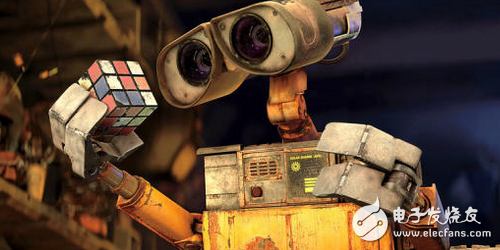Go World Champion Ke Jie was directly "disgusted" by the super computer program "AlphaGo" last week, which made the world cast more attention on artificial intelligence technology. Some analysts are not worried about it, such as algorithms. Artificial intelligence technologies such as robots and self-driving vehicles have disrupted the work of the middle class and exacerbated inequality. The sci-fi bestsellers have even predicted that humans will one day invent the machine that destroys themselves.
But can the so-called artificial intelligence really replace human work, or most of the tempting work? In fact, this may not be the case. The three major reasons indicate that there is still a long way to go before artificial intelligence can replace human beings.
First, there is a fundamental difference between artificial intelligence and the way humans deal with problems. As computer scientists pointed out in the 1980s, even the most complex artificial intelligence is simple and difficult for humans, but on the contrary, AI can often easily do what we think is difficult.

For example, most people can walk from an early age, manipulate objects and understand complex languages, and never care about the amount of computation and energy required to perform these tasks. However, it is more than a decade for scientists to create a robot that can be clumsy to simulate a human walking posture. As another example, although artificial intelligence can perform mathematical calculations that far exceed human capabilities, they cannot easily climb stairs, open doors, and rotate valves. Or play football - and these things are easy for normal people.
Second, for pattern recognition that already has a big data set backing, such as looking up objects in a video site, or detecting fraud in a credit card, the current artificial intelligence technology is very mature, but for anomalies that do not conform to the usual pattern. , or when there is little data. To deal with this situation, it still needs real human experience, intuition and social awareness to deal with.
Third, the latest artificial intelligence techniques cannot explain their behavior or the reasons for these behaviors. In these "black boxes", you can't simply read the code to analyze its operating mechanism and whether there is a deviation in the operation. In situations where the right to speak is important – for example, in medical diagnosis, an expert with extensive experience is needed.
Of course, everything mentioned above is just the state of the art today, and the future may be completely different from the present. However, new artificial intelligence technologies take time to fully penetrate into economic activity. Data-rich industries such as digital media and e-commerce are just beginning to unleash the power of artificial intelligence creation.
In the healthcare, education and construction sectors, artificial intelligence applications will take longer to become popular. However, in fact, the development of artificial intelligence is likely to meet the needs of society in a timely manner; the aging of the advanced economies means that the number of laborers will decrease in the next few decades, and the demand for personal care services will be more Big.
It is true that the prophecy of science fiction writers is not alarmist. Artificial intelligence is a double-edged sword. It is harmful to human beings with bad slip. But in any case, at least at this stage, artificial intelligence is still only a powerful new tool, and it is far from being able to replace human beings, in order to enable everyone to live a better life. We should use this tool wisely.
All Aluminum Conductor,Aac Wire,Aac Conductor,All Aluminum Wire
HENAN QIFAN ELECTRIC CO., LTD. , https://www.hnqifancable.com